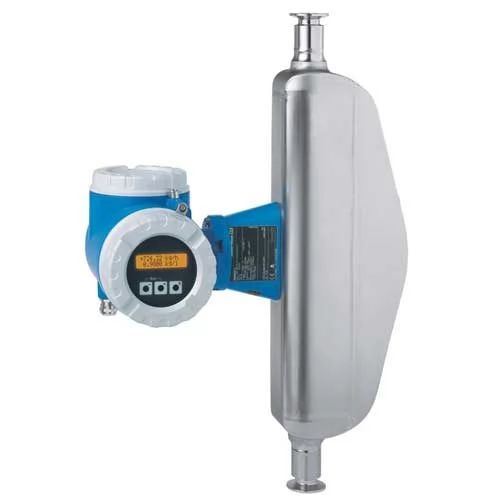
16 Jun mass flowmeter
A mass flow meter is a device used to measure the mass flow rate of a fluid passing through a specific point in a system. It provides a direct measurement of the mass of the fluid flowing per unit of time, regardless of its density or other physical properties.
Mass flow meters are commonly used in industries where accurate measurement of mass flow rates is critical, such as in chemical processing, pharmaceuticals, food and beverage, and energy production. They offer advantages over other types of flow meters, particularly when measuring fluids that may vary in density or composition.
There are different types of mass flow meters, including:
Coriolis Flow Meters: Coriolis flow meters measure mass flow rate by utilizing the Coriolis effect. They consist of a vibrating tube through which the fluid flows. The fluid’s mass flow causes a deflection in the vibrating tube, and this deflection is measured and used to determine the mass flow rate.
Thermal Mass Flow Meters: Thermal mass flow meters measure mass flow rate by employing the principle of heat transfer. They have two temperature sensors, one heated and the other downstream. The flow rate is determined by the amount of heat carried away by the fluid, which is related to its mass flow rate.
Volumetric Flow Meters with Density Compensation: Some flow meters, such as vortex or turbine flow meters, can be combined with additional sensors to measure fluid density. By incorporating density measurement, volumetric flow rates can be converted to mass flow rates.
Mass flow meters offer several advantages, including:
Accurate measurement: They provide direct mass flow readings, which are not affected by changes in fluid properties such as temperature, pressure, or composition.
Wide range of fluid compatibility: Mass flow meters can handle a wide range of fluids, including gases, liquids, corrosive substances, and slurries.
High turndown ratio: They can accurately measure flow rates over a wide range, from low to high flow rates, with a high turndown ratio.
Minimal pressure drop: Many mass flow meters have low-pressure drop characteristics, minimizing the impact on the system’s performance.
When selecting a mass flow meter, factors such as the type of fluid, flow range, accuracy requirements, pressure and temperature conditions, and compatibility with the process should be considered to ensure the meter meets the specific application needs.

